Changing the mindset on climate
With the United Nations Climate Change Conference (COP26) postponed until 2021, experts at the University are driving debate forward with a virtual climate event this month. In this Edit feature, speakers and fellow academics discuss progress in environmental technology, the pros of behavioural change and parallels with the pandemic.
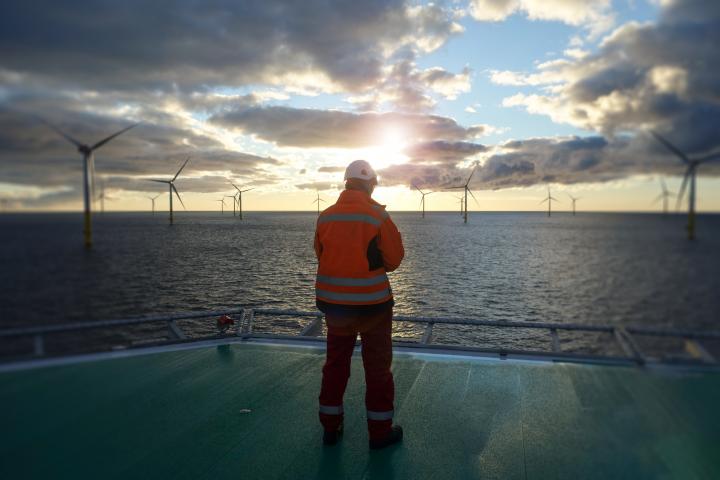
Unprecedented wildfires and flooding, global protests sparked by Greta Thunberg and calls to action from high-profile figures including Sir David Attenborough have in recent times helped put climate change at the centre of public discourse like never before.
Amid a surge in public support and widespread calls to address the climate emergency, experts in the science, business response, policy and politics of climate change from the University are at the forefront of efforts to help deliver real solutions.
The time is now
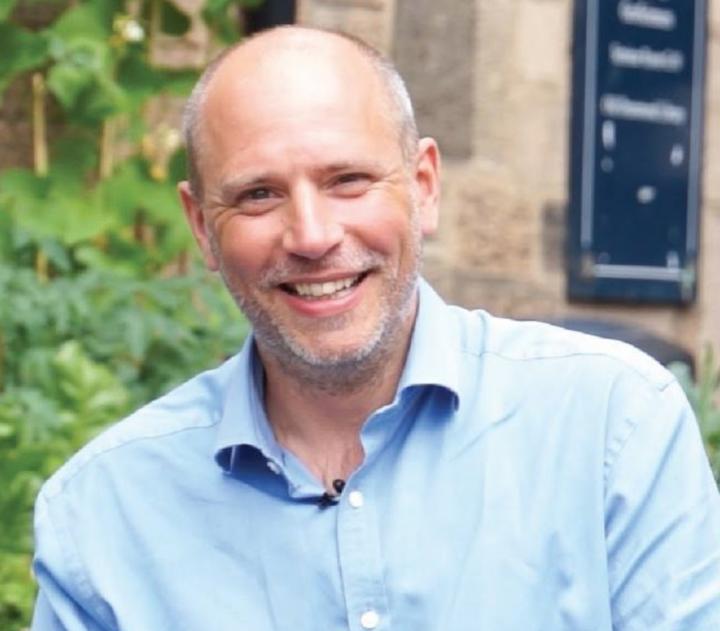
“Being a climate scientist, I have to be optimistic, always, but in the last 18 months I’ve been the most optimistic I’ve been in 25 years working on climate change,” says Professor Dave Reay, Chair in Carbon Management and Education and Director of the Edinburgh Centre for Carbon Innovation (ECCI).
“Talk of climate change being a bit niche, something to deal with in the future or a problem that will be solved simply by new technology – all of that’s gone largely. Now, people are saying, ‘Right, this is real, we’re all now aware of it, so what do we do?’ It’s a change in mindset that’s wonderful to see.”
But as the Covid-19 outbreak forces the postponement of COP26, the global climate change conference which was to take place in Glasgow this autumn, Professor Reay and other academics are urging that, now more than ever, we must not lose sight of the need to do more to tackle the crisis.
Professor Reay will be chairing an open-to-all online event called “Climate, Covid and COP26” on 21 May. Hosted by ECCI, it will bring together leading experts from Edinburgh, Oxford and the US to maintain momentum on climate discussions and actions (follow the link at the end of this feature to register).
“We have to move a lot faster than we are at the moment,” says Professor Reay. He believes that a key indicator of how well society is doing in fighting climate change is whether or not we’re on track to meet the goals set out in the 2016 Paris Agreement. These aim to limit global temperatures to significantly below two degrees of warming this century, with an ambition of keeping warming less than 1.5 degrees.
“Those targets are there because even a slight increase above 1.5 degrees would be devastating for millions of people, and it gets worse and worse as it gets warmer,” Professor Reay says. “We’re already at more than one degree of warming, and on track for something like three degrees by 2100, so we’re way off course at the moment.”
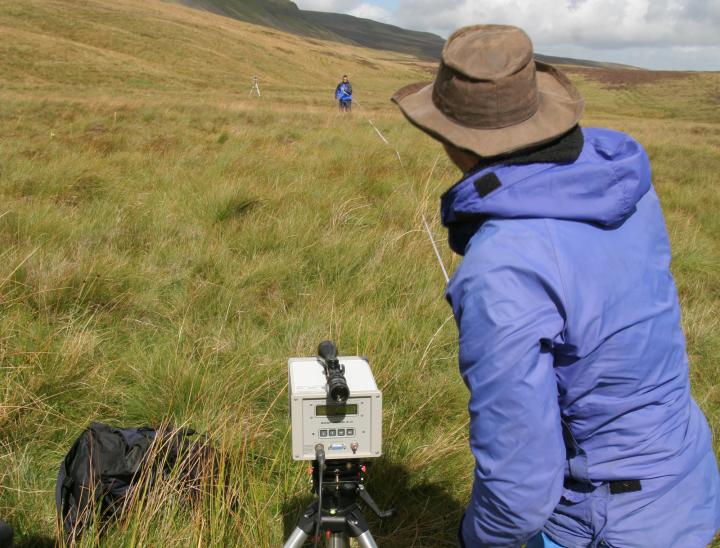
Understanding green technology
Engineers and geoscientists at the University are conducting world-leading research to better understand climate change and to devise ways of tackling it, examining everything from carbon storage in tropical peatlands and changes in Arctic and Antarctic ecosystems to cutting-edge renewable energy technologies. Another area showing real promise is carbon capture and storage, a technology that could enable hundreds of millions of tonnes of carbon dioxide to be locked away in porous rock deep below ground.
Pioneering the work at Edinburgh is Stuart Haszeldine, who was the world’s first Professor of Carbon Capture and Storage. For him, if cutting out the use of fossils fuels completely at this stage is not yet feasible, it is important to at least stop them causing global warming during the transition to zero carbon: “Carbon capture and storage is a way of carrying on using gas and oil, while capturing the carbon dioxide that’s emitted before it goes into the atmosphere. We’ve shown there’s capacity to store around 200 years’ worth of emissions in deeply buried rocks offshore of the UK coast.”
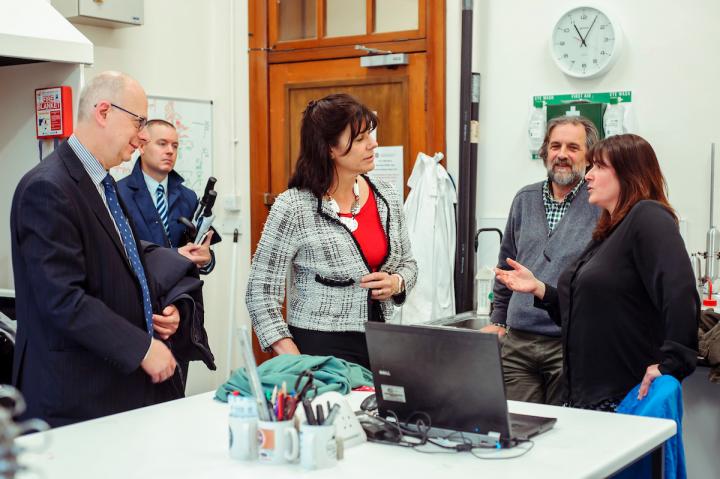
Elsewhere, Edinburgh researchers in engineering are developing and applying some of the latest technologies linked with marine energy resource measurement and prediction, extraction, conversion and transportation of power produced from waves and tides to the UK homes, seeking to mirror progress already made with wind and solar power. Head of the Institute for Energy Systems, Professor Vengatesan Venugopal, believes marine energy technologies based on offshore wind, waves and tides are doing a lot to displace demand for fossil-fuelled electricity, and this is a big contributor to positive efforts to fight climate change.
“Work is ongoing to overcome the technical challenges of offshore wind, wave and tidal technologies, such as how to reduce costs, and gaining a better understanding of how the machines we’re developing respond to the environment,” says Professor Venugopal. “There’s also a real need for longer-term, stable investment to harness the full potential of offshore renewables as a means of tackling climate change.”
Watch Professor Stuart Haszeldine talk about his research
- Video: Stuart Hazseldine research in a nutshell
- Professor Stuart Hazseldine research in a nutshell video
The social scientists focusing on climate
The University’s expertise in unpicking the science of climate change, and developing technologies to tackle it, are vital – but essential roles for business and politics experts in making solutions a reality cannot be overlooked. “We can get some of the way towards achieving net zero emissions using new technology,” says Professor Dave Reay. “But we won’t get anywhere near it unless it’s combined with an understanding of business, society and people.”
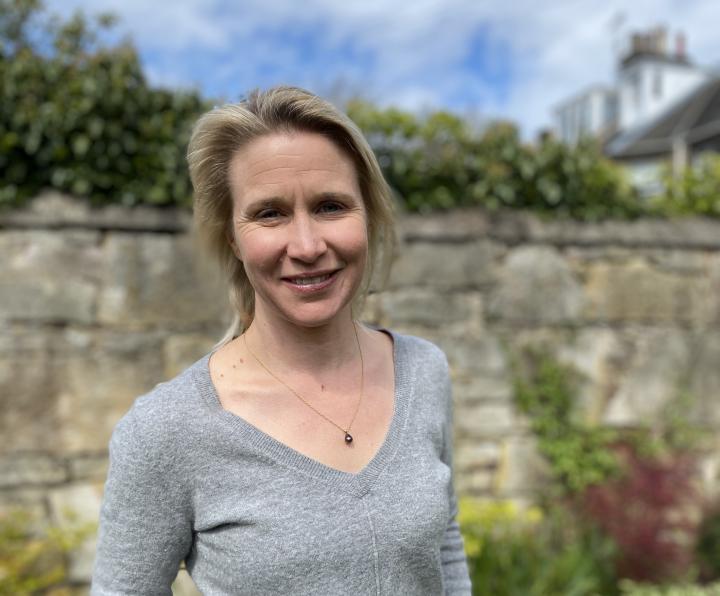
This view is shared by academics from across the University, including Dr Sarah Ivory, Lecturer in Climate Change and Business Strategy in the Business School, who will be speaking at the “Climate, Covid and COP26” online event. “The problem isn’t knowing if climate is going to be bad or not; we know it’s going to be bad,” she says. “And the problem isn’t having scientists work on the technologies we need; many of them already are. The problem is behavioural change, business investment and policy change. And all of those things are social sciences.”
“There’s no easy solution, but it’s clear we need more political scientists and business researchers to focus on climate so that we can bring about real change,” says Dr Ivory. She is Director of the newly established Centre for Business, Climate Change & Sustainability, which aims to support the transition to a low-carbon economy by working at the interface between climate, business and policy.
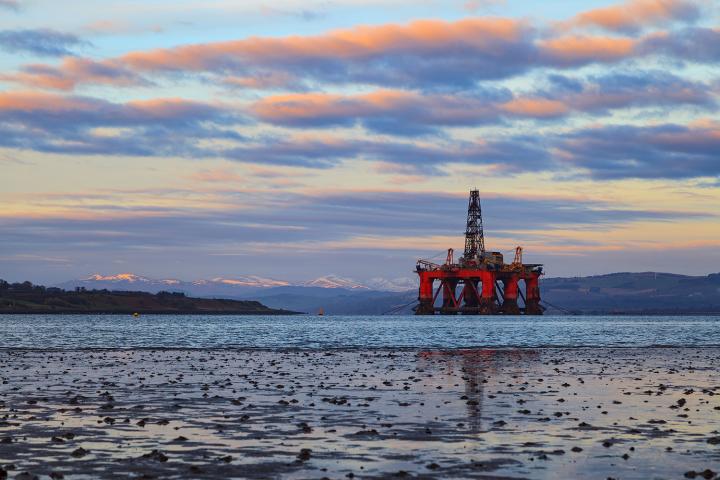
While moving away from fossils fuels can feel like an unprecedented challenge, Dr Ivory feels people often don’t realise how many transitions economic systems have gone through in the past: “Two centuries ago the British economy was fuelled by slavery, and most of the arguments against its abolition at the time were that it would be a disaster economically. When slavery was abolished, business transitioned pretty quickly to another source of fuel for the economy – fossil fuels. We have the ability to transition economic systems given the will and commitment, it’s just that this tends to happen over the course of a lifetime. And we don’t have that long.”
Bringing about behavioural change
By coalescing expertise from two existing Business School centres – the Sustainable Business Initiative and the Centre for Business & Climate Change – the new hub builds on more than a decade’s experience, and aims to help deliver positive social and environmental change by working closely with large and small businesses, policymakers and non-governmental institutions.
The work of the centre and others at the University, including ClimateXChange based in the ECCI– which acts as a knowledge broker between researchers and policymakers to inform Scotland’s climate policy – are helping to facilitate vital connections between the fields of science, policy and business.
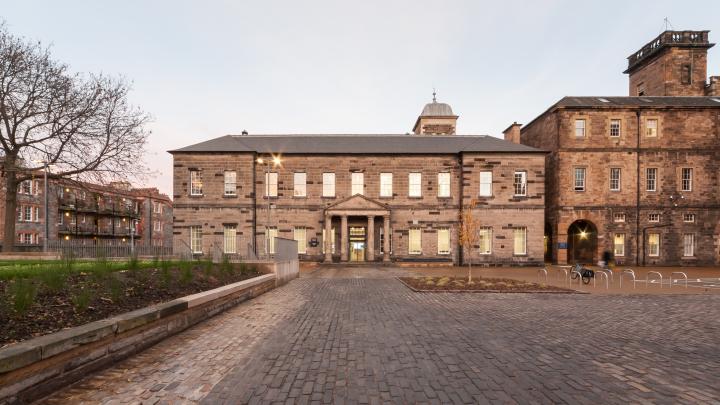
Such concerted efforts to dovetail the numerous facets of climate change are helping to drive real progress, and researchers say the response to the ongoing Covid-19 pandemic demonstrates that the world can act rapidly on emergencies that require global action and cooperation. Reflecting on parallels between climate change and the virus outbreak could offer a unique opportunity to bring about meaningful changes needed to support the transition to a low-carbon future.
Drawing parallels with the coronavirus pandemic
“As we’re seeing with Covid-19, once people accept there’s a crisis, behaviour change can happen quite quickly,” explains Dr Ivory. “While we do not know quite how bad the virus is, it’s bad enough that we accept we need to act in certain ways – a perfect parallel with climate change. While we are not precisely sure what will happen with climate – although scientists have given us a very good idea – it shouldn’t matter, the science shows it is bad enough that we know we need to act.”
“It’s about how we as individuals decide what is essential,” she continues. “At the moment, we’re concerned about Covid-19 because it might affect us directly: it could kill me, my mum or my dad. Climate change might kill people – in fact, it’s killing people every day – but it’s not my mum and my dad, it’s not me. This is an obstacle to driving behavioural change and an acceptance of structural change in the economy.”
Elizabeth Bomberg, Professor of Environmental Politics in the School of Social & Political Science, believes we must think boldly during these times of major disruption. “To me the largest challenge in terms of addressing climate change is the extent to which fossil fuels and high-carbon activities are so profoundly embedded in our economy and society,” she says. “It’s not about just getting rid of something, it’s about a really fundamental transformation of how we heat our homes and get around. That’s why I think we’ll be at a point, after this incredibly disruptive crisis that we’re facing right now, where we could build things up in a different way.”
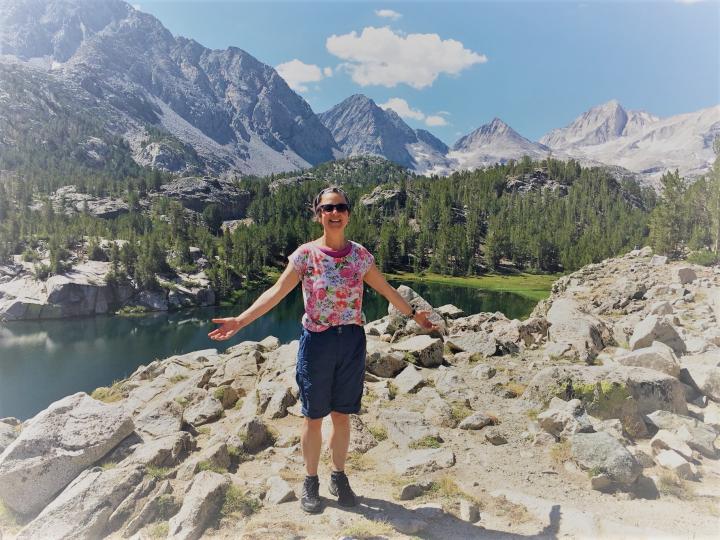
Understanding what drives people to take action – and what does not – is crucial to finding effective ways of tackling the climate crisis. “We know it’s not the science,” says Professor Bomberg, who also will be joining the ECCI online event on 21 May. “It’s not even scary weather events like the Australian wildfires; scaring people doesn’t work. We of course need the science, but just informing people of it isn’t always very useful because it can feel abstract and like it’s not something that directly affects us. Or it feels so daunting that it can freeze mobilisation.”
Overcoming the obstacles to transition

Professor Bomberg’s research looks at these different mobilising factors, and she believes that making connections between climate change and what people value – their health, families and local environment – is crucial. This is echoed by Professor Dave Reay: “One of our main obstacles is ensuring we bring enough people along. Some of the changes that need to happen are going to be things that we as individuals and communities might be resistant to, so making clear all of the benefits of those changes, and ensuring socially just transitions, is vital.”
Successfully transitioning industries like the oil and gas sector – which supports huge numbers of highly skilled jobs – is a major challenge, explains Professor Reay: “Governments and the private sector need to ensure that they can adapt to things like carbon capture and storage.” Initiatives involving the University are already addressing how the industry’s expertise and infrastructure could be repurposed to use technology that puts carbon back into the ground rather than taking it out.
“There’s an opportunity to create a giant new industry in carbon dioxide storage,” says Professor Stuart Haszeldine. “And it comes at a time when UK and European governments are looking to de-carbonise industrial processes by capturing the carbon emissions they produce and permanently locking them away somewhere secure and safe.”
Professor Haszeldine has also worked to build research expertise in Scotland, being Director of Scottish Carbon Capture and Storage, the largest carbon capture and storage research group in the UK. That world leading expertise is central to commercial initiatives such as the North East Carbon Capture, Usage and Storage Alliance, which aims to safeguard tens of thousands of North Sea jobs, and has the backing of the Scottish Government and the oil and gas industry. He is also working with Scottish Gas Networks on a project that could see households in the country among the first in the world to have the fuel that heats their homes switch from natural gas to hydrogen – a clean fuel that produces only water as a by-product.
Another proposal being put forward to the UK Government, the Carbon Takeback Obligation, could help achieve net zero emissions by requiring extractors and importers of fossil fuels to ensure the permanent storage of a certain percentage of the carbon dioxide they generate. Professor Haszeldine believes the scheme would have numerous benefits, including bringing thousands of high-quality jobs to Central and North East Scotland, pivoting offshore industries and reducing decommissioning costs.
“The establishment of a carbon capture and storage industry fits with a greater awareness of climate change, and the actions mandated in the 2016 Paris Agreement,” says Professor Haszeldine. “And climate modelling shows that carbon capture and storage is an essential, must-have technology in order to help achieve those targets.”
A new approach for the next generation
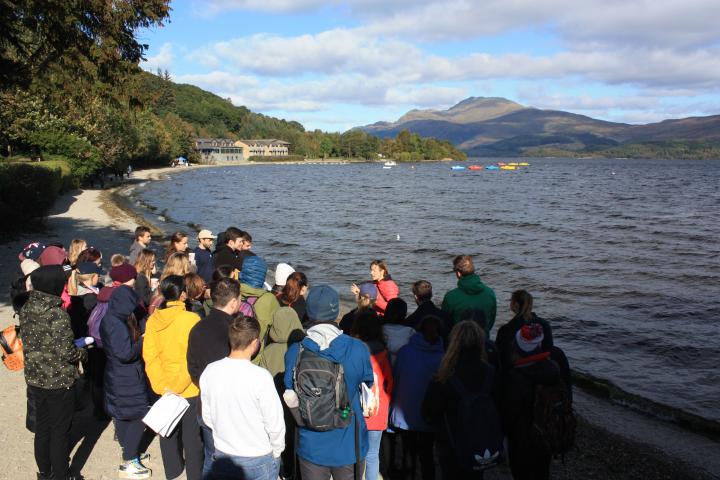
Another key way that the University can have a transformation impact on the climate emergency is by training the next generation of students. Several undergraduate and postgraduate programmes at Edinburgh focus on climate change, including the MSc in Carbon Management. As the University’s first cross-School Masters programme – hosted by academics from GeoSciences, Economics and the Business School – it was set up in recognition of the need for graduates who know how to deal with climate change as more than just a scientific problem.

“Not only are we learning about the science and practicalities of climate change, the programme also considers influences from economics of climate change and the implications for businesses,” says Annie Bradshaw, an MSc in Carbon Management student . “It really puts the problem into perspective. That broader knowledge is essential because it’s such an interdisciplinary subject, and because getting businesses and government on board is crucial for successful mitigation.”
As well as being equipped by the programme with the knowledge and skills needed to deliver workable solutions to climate challenges, the students are themselves a powerful driving force for the academic community, explains Professor Elizabeth Bomberg: “For anyone who researches or teaches climate change, it is the students that give us hope with their creativity, optimism, energy and ideas.”
With world-leading expertise in all aspects of climate change – from science and engineering to education, business and policy – Edinburgh is in a pivotal position to influence efforts to address the challenge, as Professor Reay explains: “The richness of expertise we have at the University when we’re facing the climate challenge in the 21st century is priceless. We’re able to debate and test ideas drawing on that expertise right across the disciplines, and that’s hugely valuable.”
Building on Edinburgh’s unique blend of expertise, while harnessing a global groundswell of support and learning lessons from the Covid-19 outbreak, could prove key in bringing about changes – from individual actions to societal shifts – needed to make urgent progress in tackling the climate emergency.
Watch a video made by MSc Carbon Management students from around the world
Find out more
Register to attend the virtual event “Climate, Covid and Cop26.” on 21 May 2020, hosted by the University’s Edinburgh Centre for Carbon Innovation.
Visit the Covid-19 microsite
Photo credits: Getty Images/bomboman/Charlie Chesvick, Callum Bennetts, Dave Morris, Toni Freitas, University of Edinburgh.
About the writer: Corin Campbell is a PR and Media Manager at the University of Edinburgh.

